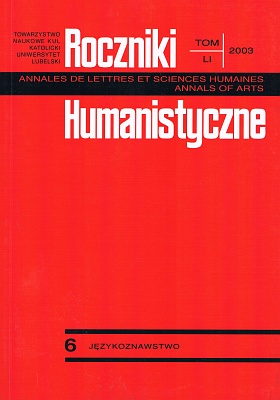O semantycznej ekwiwalencji przysłów
Abstrakt
Proverbs, as peculiar mini-texts, are a subject of interdisciplinary studies. Also for linguists they are a precious field of various types of research and analyses.
The article touches upon the problem of the way different proverbs, having the same semantic value, function in the language, eg. the two proverbs Jaki ojciec, taki syn (Like father, like son) and Niedaleko pada jabłko od jabłoni (An apple falls close to the apple tree) have the same meaning ‘children are like their parents’. The described phenomenon is called semantic equivalence, and, as it appears, is not a homogeneous phenomenon in the world of proverbs. There are sets of proverbs that are characterized by a real semantic identity, but one should more often talk about similarity, and not identity within one particular semantic group. This fact is made up by the following factors: the syntactic plane that decides about formal relations between parts of the proverb, and the lexical store that is connected with a particular type of imagery. Both these factors form the final and complete meaning of the given proverb. They may be the source (albeit not in every case) of additional contents of the meaning, which is why proverbs that carry the same meaning have various functions – those of admonition, warning, reprimand, critique, praise, encouragement or assessment, etc. Hence a definite form of a proverb may determine the way and range in which it may be used and be a factor that limits interchangeability in the group of equivalents.
Equivalence of proverbs undoubtedly is a proof of the language’s wealth – it is a phenomenon that makes it possible to choose the most adequate proverb, depending on the intentions of the sender and the function it is supposed to fulfil in a definite communication situation.
Copyright (c) 2003 Roczniki Humanistyczne

Utwór dostępny jest na licencji Creative Commons Uznanie autorstwa – Użycie niekomercyjne – Bez utworów zależnych 4.0 Międzynarodowe.





